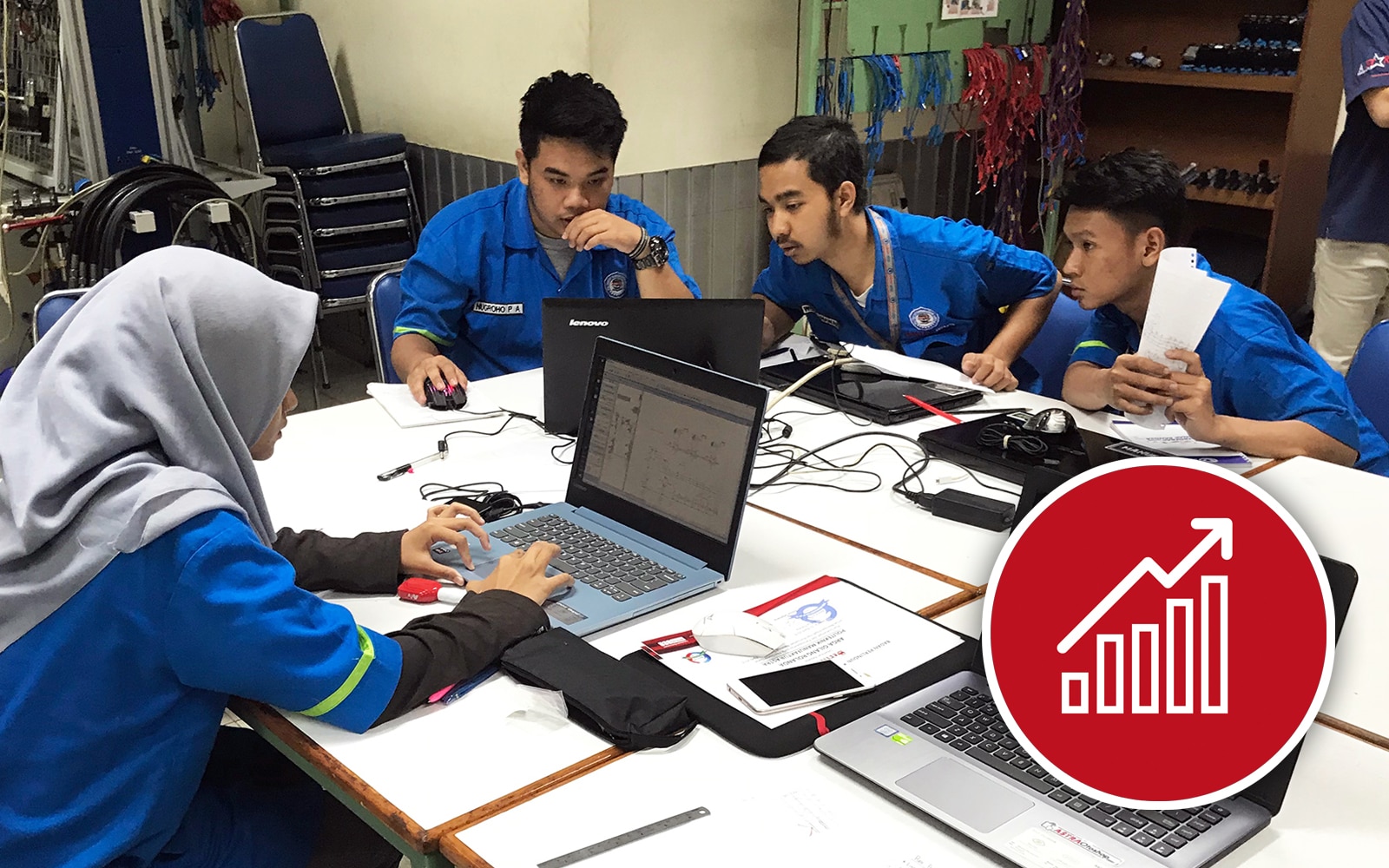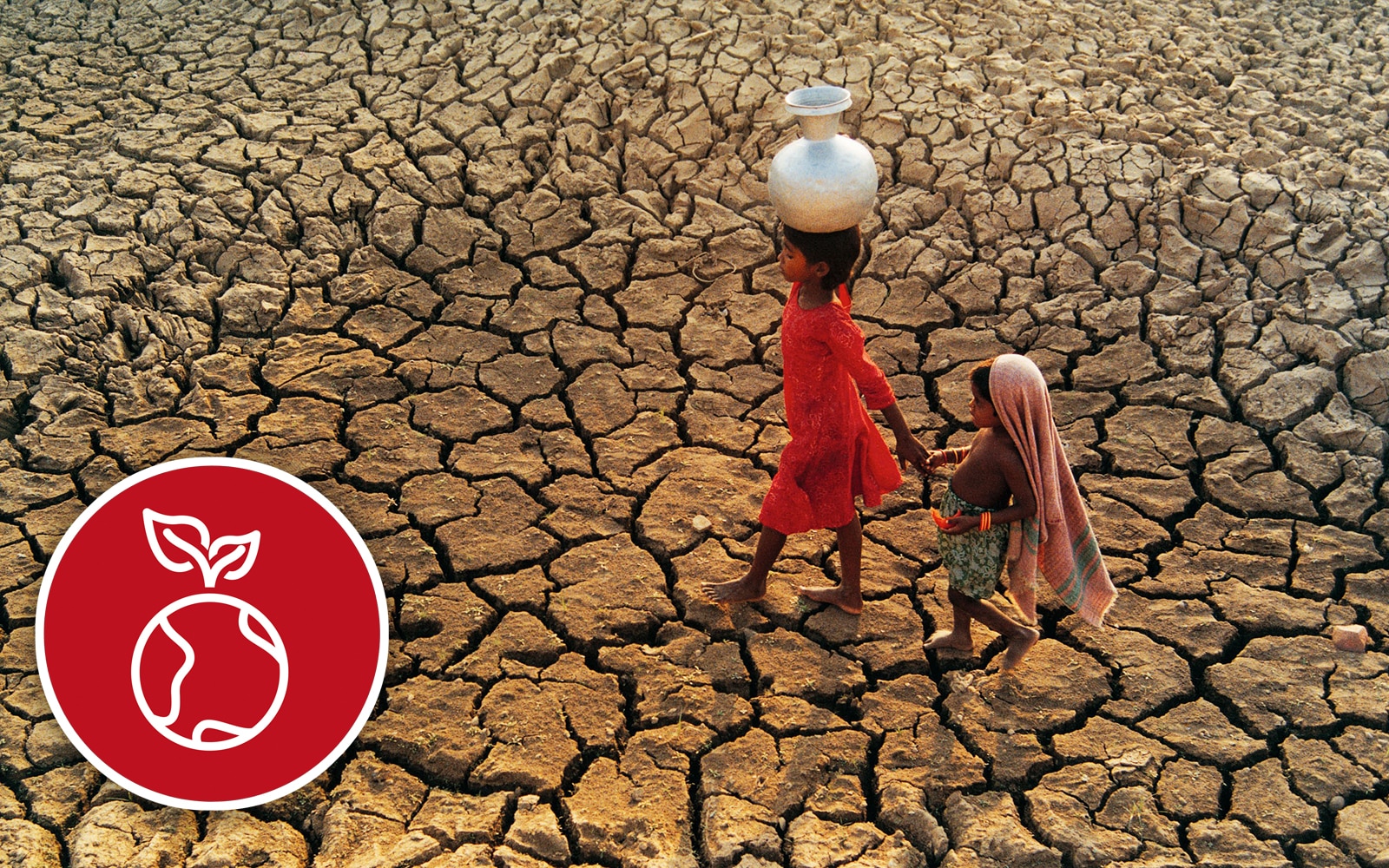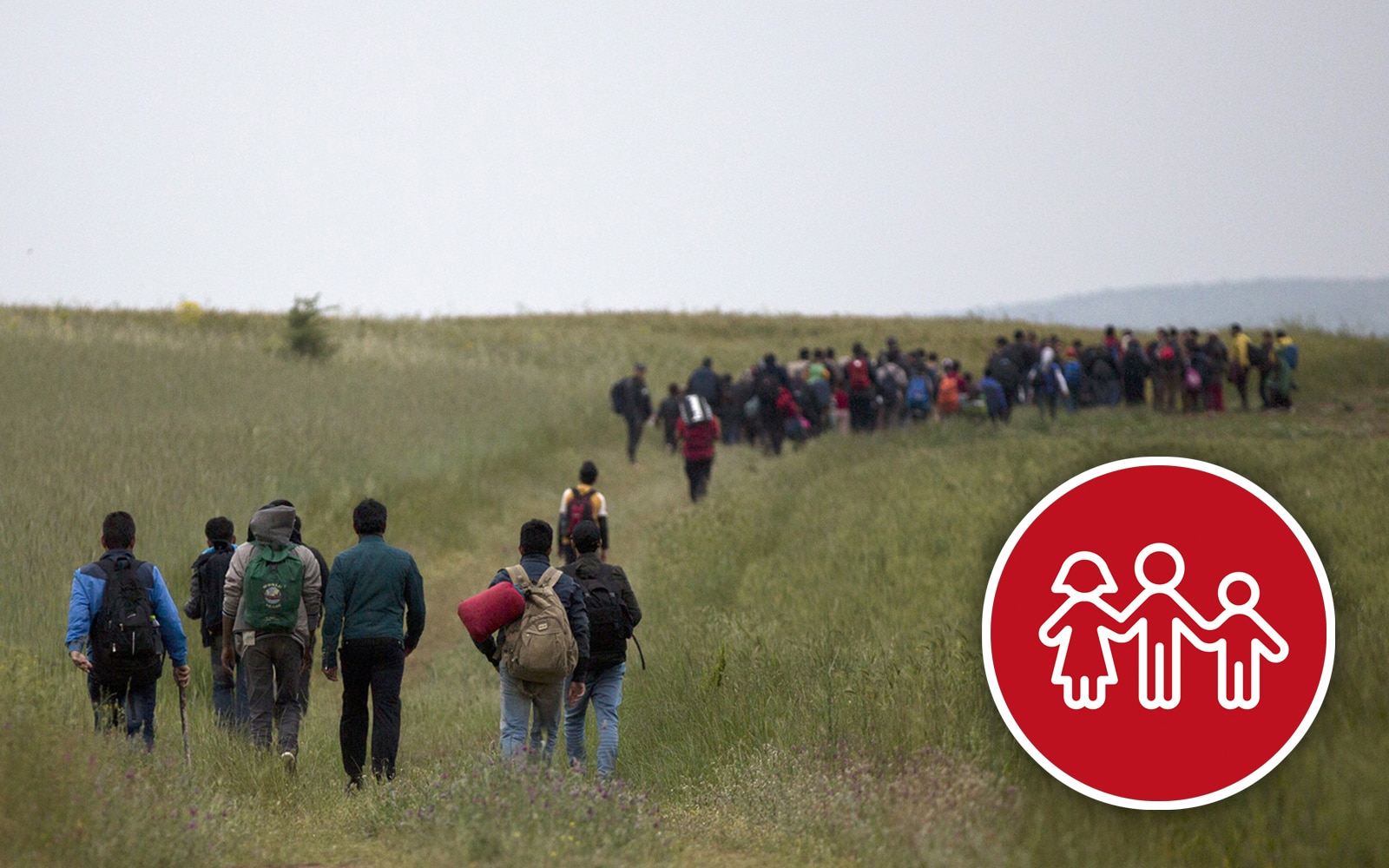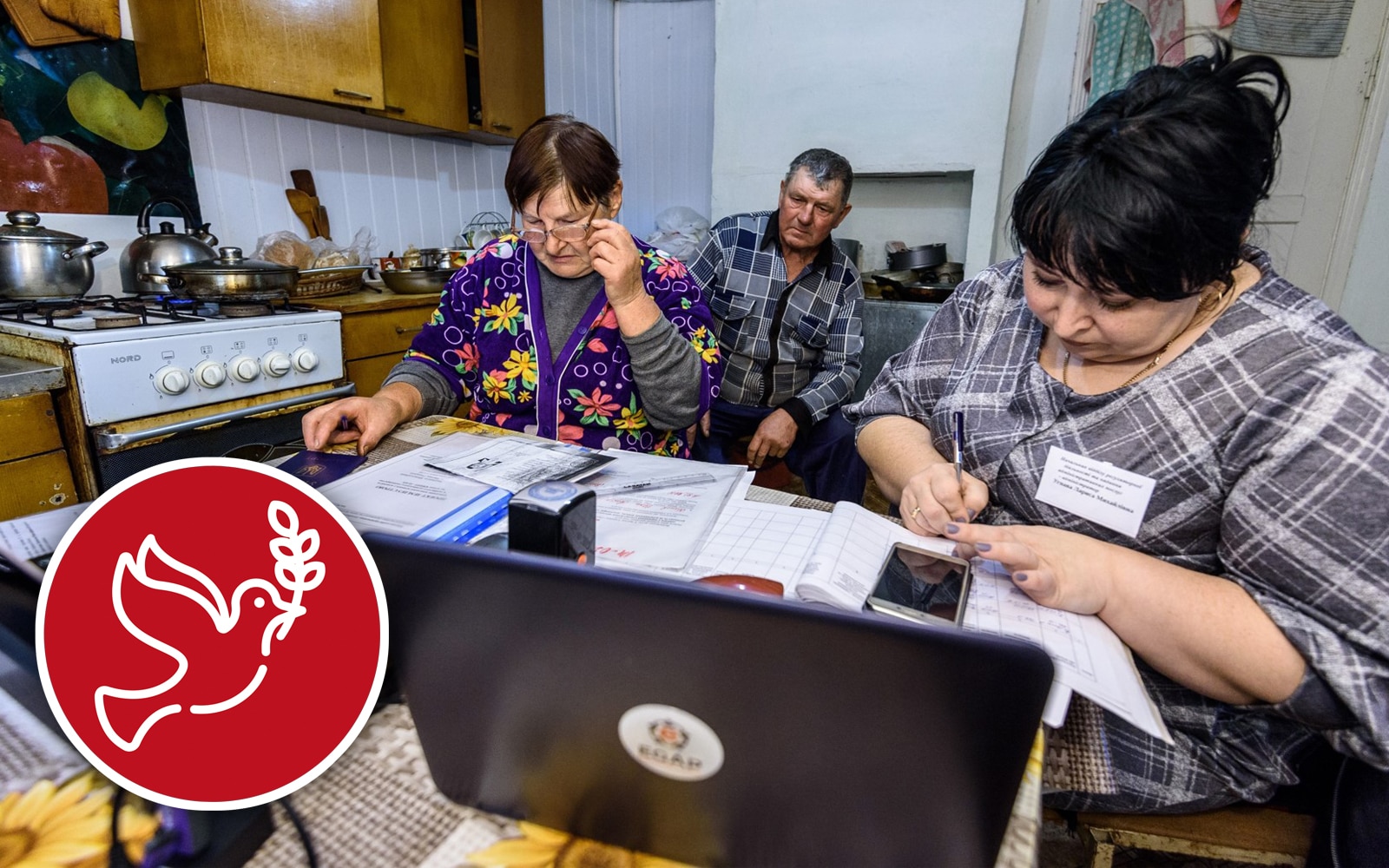Switzerland's international cooperation for 2021–24 to focus on jobs, climate, migration and the rule of law
Switzerland's international cooperation work is a foreign policy instrument. Rooted in the Federal Constitution, its purpose is to alleviate need and poverty in the world, to foster respect for human rights, to promote democracy and to conserve the environment. The Federal Council adopted the International Cooperation Strategy on 19 February 2020, and is applying to Parliament for CHF 11.25 billion for its implementation.
.jpg)
Gender equality is important to sustainable development, and thus one of the objectives of Switzerland's International Cooperation Strategy 2021–24. © Fondation Hirondelle
Based on the Federal Constitution and Swiss law, every four years the Federal Council and Parliament set out the strategy for Switzerland's international cooperation work. The Federal Council adopted the latest international cooperation strategy on 19 February 2020. Many people around the world are still at risk from armed conflict, climate change, water scarcity and a lack of access to resources and services such as education and healthcare. Switzerland endeavours to target its international cooperation efforts where they can achieve maximum effect. With this in mind, it is setting new thematic and geographical points of emphasis for the 2021–24 strategy period.
Four main themes, focused geographically
To ensure that Switzerland's engagement in international cooperation remains effective, up to 2024 the resources that the FDFA dedicates to bilateral development cooperation will be concentrated on four priority regions: Eastern Europe, North Africa and the Middle East, Sub-Saharan Africa and Central, South and South-East Asia. Local needs, long-term Swiss interests, and the added value that Switzerland can achieve with its international cooperation all intersect in these regions at present. Focusing efforts geographically makes them both more effective and more efficient, while offering the flexibility to respond to opportunities outside of priority countries.
The International Cooperation Strategy pursues four objectives of equal importance. These will help to reduce poverty and to implement the 2030 Agenda's Sustainable Development Goals, which were adopted by all UN member states in 2015. However, international cooperation also works in Switzerland's longer-term interest in a just and peaceful international order, stable economic conditions which support investment, a reduction in the causes of forced and irregular migration, and sustainable development worldwide.
Objective 1: Economic development

Jobs are key to economic development and to reducing poverty. Switzerland uses its own dual education system as a point of reference in its development cooperation efforts in this field. In doing so, it fosters the skills that are in demand on the various labour markets in developing countries. Switzerland is thus contributing to sustainable economic growth, to market access for its partner countries, and to creating decent employment opportunities.
Objective 2: The environment

Our climate continues to change, affecting millions of people. Climate change can exacerbate extreme poverty and famine with phenomena such as natural disasters, rising sea levels and extreme drought.
The International Cooperation Strategy provides for around CHF 400 million to be dedicated to this area – an increase of CHF 100 million compared to the current 2017–20 strategy period – and around 15% of the entire international cooperation budget. Switzerland is thus both helping to mitigate climate change in developing countries, and supporting them as they adapt to its consequences.
Objective 3: Human development

Switzerland endeavours to save lives, ensure basic services in education and healthcare in particular, and to reduce the causes of forced and irregular migration. Migration will form part of the thematic focus of international cooperation during the 2021–24 strategy period. More than 70 million people worldwide have been forced to leave their homes as a result of armed conflict and persecution. Of these, 85% are in developing countries. Switzerland has an interest in reducing forced and irregular migration and in ensuring that refugees and migrants are better protected in their countries of origin and transit. International cooperation also addresses the root causes of irregular migration, such as poverty, armed conflict, poor governance, and the impacts of climate change. Switzerland is thus creating long-term prospects for local populations.
Objective 4: Peace and governance

With its international cooperation, Switzerland promotes peace, the rule of law and gender equality. It enjoys an excellent reputation internationally on the strength of its own long democratic tradition. Respect for human rights, gender equality and equal opportunities for the disadvantaged, and a functioning state under the rule of law, are important to sustainable development. In its work, Switzerland also expects its partner governments to take responsibility, and helps them to fight corruption, clientelism and mismanagement. In doing so it strengthens civil society organisations in developing countries so that they are able to demand accountability from their governments and are better able to monitor the state's activities.
In addition, international cooperation fosters dialogue between conflicting parties engaged in peace processes. Switzerland always works towards achieving a lasting peace that is acceptable to all of those affected. It has internationally sought-after expertise in areas such as mediation, federalism and dealing with the past.
International cooperation remains important
Independent evaluations have given Switzerland's international cooperation work during the 2017–20 dispatch period a good report. There have many successes, but numerous challenges nonetheless persist:
To date, the economic upturn in numerous developing countries and emerging markets has been achieved to a large degree at the expense of the environment.
One in ten people around the world is affected by extreme poverty. Although this is far fewer than the one in four recorded in 1981, it is still too many. More than half of these extremely poor people live in Sub-Saharan Africa.
There is still a wide gender gap, social exclusion, and a lack of prospects for young people. This has a negative effect on the economic growth and the stability of the countries that are affected.
Armed conflicts, such as those in Syria, Mali and Yemen, will not be settled overnight. There are high numbers of civilian casualties, and more and more people are being forced to flee.
It is enshrined in the Federal Constitution that Switzerland will assist in "the alleviation of need and poverty in the world and promote respect for human rights and democracy, the peaceful co-existence of peoples as well as the conservation of natural resources”. In light of the prevailing challenges around the world, Switzerland's international cooperation continues to have an important role to play.
Harnessing Federal Administration synergies
International cooperation is implemented by three federal agencies: the Swiss Agency for Development and Cooperation (SDC) and the Human Security Division (HSD) within the Federal Department of Foreign Affairs (FDFA), and the State Secretariat for Economic Affairs (SECO) within the Federal Department of Economic Affairs, Education and Research (EAER). The SDC is responsible for coordinating development cooperation and humanitarian aid. The HSD is committed to peace, human rights, and the protection of the individual. Meanwhile, SECO concentrates on sustainable economic and trade policy. The SDC, HSD and SECO all complement each other and harness the synergies that exist between them.
The future of Switzerland's international cooperation
Foreign policy is becoming increasingly important to Switzerland's prosperity and security, and yet the international parameters are in a constant state of flux. According to the federal government's Foreign Policy Vision 2028 (AVIS28), as in other fields the courage must be found to change the approach to international cooperation. Since development cooperation accounts for more than half of the FDFA's budget, by 2028 it needs to establish an even broader base of domestic political support, and also become more focused.
By determining priority regions and areas of thematic focus, and by undergoing its first-ever public consultation process in the summer of 2019, the International Cooperation Strategy 2021–24 is an important step in this direction. The high level of participation in this process demonstrates that there is a great deal of interest in international cooperation in Switzerland, and has also helped to better integrate the issue in the domestic political debate. By including the added value of Swiss international cooperation as one of the three criteria in its strategic approach, Switzerland is consciously playing to strengths which are rooted in its own political system and which can make a real difference worldwide.
Links
- International Cooperation Strategy 2021–24: greater focus and impact
- Areas covered by the SDC
- The SDC's impact
- Peace and human rights
- Economic cooperation and development, SECO
- Federal Council adopts the International Cooperation Strategy 2021–24, Press release, 19.02.2020
- Results in the 2017–20 period: Switzerland's international cooperation is working, Press release, 19.02.2020
Documents
- Report on the results of the consultation on Switzerland's international cooperation 2021-24 (PDF, 25 Pages, 1.0 MB, German)
- Botschaft zur Strategie der internationalen Zusammenarbeit 2021-2024 (PDF, 92 Pages, 2.2 MB, German)
- Switzerland’s international cooperation is working. Final report on the implementation of the Dispatch 2017–20 (PDF, 52 Pages, 16.2 MB, English)Die internationale Zusammenarbeit der Schweiz wirkt. Schlussbericht zur Umsetzung der Botschaft 2017–2020
La coopération internationale de la Suisse prouve son efficacité. Rapport final sur la mise en œuvre du message 2017–2020
La cooperazione internazionale della Svizzera è efficace. Rapporto finale sull’attuazione del messaggio 2017–2020
